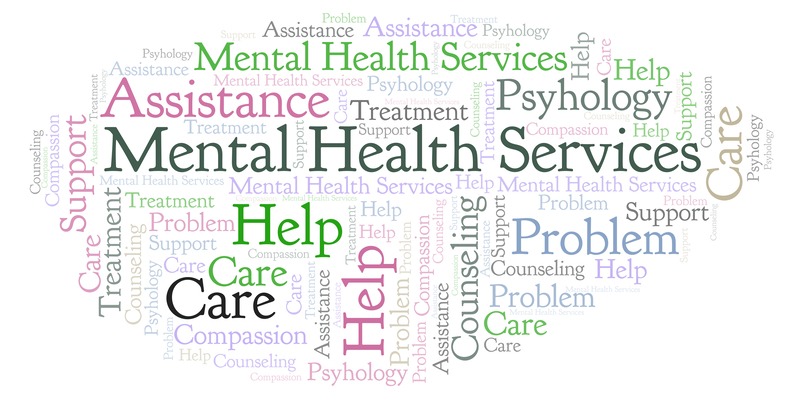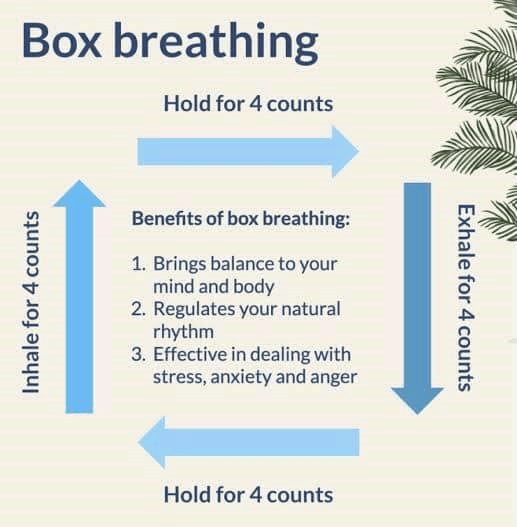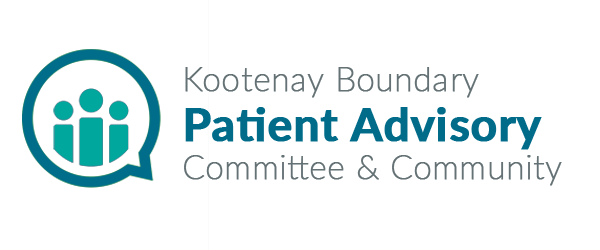Empowering the Citizen Patient

Article #5
Healthy People, Healthy Communities –
Taking a Closer Look at Supporting Our Psychological Well-Being
In this article of our monthly “Empowering the Citizen Patient” series, Dr. Mindy Smith, retired family physician and active member of the Kootenay Boundary Patient Advisory Committee, shares her expertise, tips and resources for supporting people who are affected by depression and/or anxiety. Join us as we continue our journey to empower both patients and those who care for them.
Mental health is a hot topic these days — from television, radio, to social media and kitchen table conversations. This surge in awareness is partly due to the opioid epidemic, the many crises our world faces, and of course, the COVID-19 pandemic. Mental health encompasses our emotions, feelings of connection to others, past trauma, our thoughts about ourselves and our ability to manage life’s ups and downs. Our mental health affects how we think, feel and act.
What you need to know
Over 5 million Canadians were affected by a mood or substance use disorder in 2022 according to Statistics Canada. The most important thing to know is that mood disorders are treatable, and they are not something to be ashamed of. Getting help is the first step.
There is a very wide range of mental health disorders. For this article, I’m focusing on mood disorders like depression and anxiety, which are among the most prevalent and affect 5.4% and 4.6% of Canadians, respectively. It’s important to recognize that while occasional feelings of sadness or worry are normal, mood disorders interfere with our ability to function in our day-to-day lives.
A patient of mine shared, “During periods of anxiety or depression, I find it challenging to go about my day. Simple tasks become overwhelming.”

Depression and anxiety are nothing to be ashamed of and are treatable.
One of the ways we can learn more about ourselves is by considering these questions:
- In the past month, have I felt down or depressed or hopeless?
- Have I been bothered by little interest or pleasure in doing things?
If the answers are yes, you may be suffering from depression.
- Am I a worrier?
- Do I find it difficult to control worry once it starts?
If yes, you may be suffering from anxiety.

Where to find more information about mood disorders
A tool that family practitioners use to assess depression is the Patient Health Questionnaire (PHQ-9). Similarly, for anxiety, one tool that can help identify an anxiety disorder is the Generalized Anxiety Disorder-7. See the kbpacc.ca website and HealthLink BC (https://www.healthlinkbc.ca/health-topics) for information and links to education about mood disorders and mental health.
What to Do?
There are some things you can do in your daily life to reduce symptoms of depression or anxiety including talking to friends and loved ones, getting daily exercise and trying relaxation exercises, meditation, mindfulness or massage therapy, and creating routines and actions that help us feel better. Avoiding alcohol and recreational drugs is helpful as these can worsen negative feelings. For anxiety, try to avoid caffeine (e.g., coffee, soft drinks, chocolate), smoking cigarettes, and diet pills as these can make your anxiety worse.

Professional support is available to help treat mood disorders. The main treatments include counseling and prescription medication. Most guidelines recommend starting with counseling. Types of therapy that are effective for mood disorders include psychotherapy, cognitive behavioral therapy (CBT), and behavioral activation therapy.
You can find local counseling help online at KB FETCH, including the Healing our Spirits: Aboriginal Mental Health and Substance Use Program; on the Interior Health website; or through the BC government website. For some Indigenous persons, your benefits plan covers counseling from a qualified mental health provider, travel assistance if needed, and support services for indigenous persons affected by Indian Day School or Residential School survivors, family members and others affected by missing and murdered Indigenous girls and women in Canada (visit https://fnha.ca or call 1-855-550-5454 or contact an aboriginal health coordinator for help: https://coinations.net/referral-form-for-aboriginal-health-coordinator/).
What other help is available?
In severe cases of depression and anxiety, family practitioners often prescribe antidepressants. Different antidepressants work similarly well, so make sure to talk about side effects to find the best one for you. It’s important to note that sometimes the first medicine doesn’t always work; up to 50% of people might need to try a different one if there’s no improvement after 1-2 months. Also worth noting is that in studies of over-the-counter drugs, they have not been shown to consistently help with mood disorders.
For anyone experiencing severe symptoms including hallucinations (thoughts of seeing, feeling, smelling or hearing something that isn’t there), or delusions (a false belief about something despite strong evidence that it is not true), or suicidal thoughts, immediate help is available 24/7 by calling 1-800-SUICIDE (1-800-784-2433), KUU-US Aboriginal crisis line: 1-800-588-8717 (24 hours), or 310-6789 (24 hours) or go to your nearest emergency department.
This article only provides a small glimpse into the growing science about mental health, specifically highlighting mood disorders such as depression and anxiety. Stigma and discrimination are real issues for people living with mood disorder and mental health challenges, but know that you are not alone, and remember that these challenges are treatable, so please reach out for help.
Click/Tap the LIKE button to share via email, instagram, Facebook and More!
We would love to hear from you!
What did you think of this article? What could we do better? Any suggestions for other articles that would be helpful? Please complete our short survey here!
Table 1. Tools for Screening for Depression or Anxiety
| CONTENT | LINK | DESCRIPTION |
| Tool to screen and monitor depression | Patient Health Questionnaire (PHQ-9) | A patient-centred measure used to screen, diagnose and monitor depression severity. It asks 9 questions about depression symptoms over the past 2 weeks |
| Tool to identify and evaluate anxiety |
https://carleton.ca/health/wp-content/uploads/GAD-7.pdf
|
A patient-centred measure used to identify and evaluate anxiety. It asks 7 questions about symptoms over the past 2 weeks |
Table 2. Support Materials and References for Mental Health
| CONTENT | LINK | DESCRIPTION |
| Patient education and support | Canadian Mental Health Association (CMHA) | Contains downloadable education sheets on mental health concerns, public policy, calendar of events, and news items |
| Education | MedlinePlus | Online medical information on mental health and behavior produced by the US National Library of Medicine |
| Self-management strategies | Self-Management Strategies in Recovery from Mood and Anxiety Disorders | This article includes a variety of self-management strategies used by people to recover from a mood disorder |
| Resources on Medication Appropriateness and Deprescribing | CMAD Network | Produces, shares, and applies information to promote the safe and appropriate use of medications. |
Table 3. Specific to Depression
| CONTENT | LINK | DESCRIPTION |
| Education materials for coaching and self-help | BounceBack | Contains online modules for coaches and patients through interactive worksheets workbooks, activities, videos, or a trained coach who can provide up to 6 phone sessions |
| Education, tools and help links | HealthLink BC | Contains basic information on depression and subtopics (e.g., postpartum, children), interactive tools (decision aids and action sets) and help links |
| Specific to men experiencing depression | Headsupguys | Provides information on and contact resources and includes a self-check screening tool for depression and video testimonials from men who have recovered from depression |
| Self-care manual | Antidepressant Skills Workbook | Workbook that provides information on depression management and a step-by-step guide to changing patterns that trigger depression |
| Education | verywellmind | Provides information on depression, how to talk with your provider and what to expect for testing and treatment options |
Table 4. Specific to Anxiety
| CONTENT | LINK | DESCRIPTION |
| Education, self-help strategies | Anxiety Canada | Provides articles, education, tools and strategies for adults and youth, apps for cognitive behavioral therapy and access to group therapy |

Get the articles direct to your inbox!
